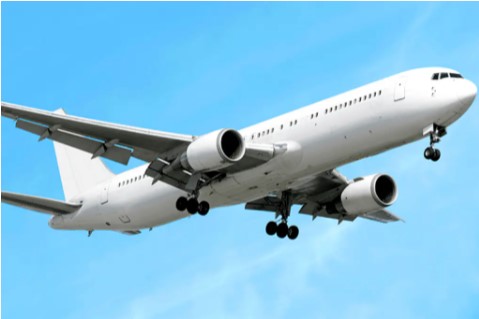The total number of lives lost to air crashes since independence has emerged.
NewsOnline reports that a total of 2,038 lives have been lost to air crashes in Nigeria since independence, the Accident Investigation Bureau, AIB, has said.
Commissioner and Chief Executive Officer of AIB, Engr. Akin Olateru stated this at the 2022 International Day for the commemoration of air crash victims and their families, in Abuja yesterday.
The AIB boss who commiserated with the family members of crashed victims said there has been a significant reduction in the number of crashes over the years, attributing the collaboration between the AIB and the Nigerian Civil Aviation Authority, NCAA.
He said: “In Nigeria, from the year 1969 to 2022, a total of 2,038 (1996 onboard passengers and 42 on ground) lives have been lost to air crashes.
“When an aircraft accident or serious incident occurs, it is always an unexpected and mostly fatal event that causes great distress and loss to the victims and their families.
“We understand that the aftermath of an air incident can be devastating to survivors, crash victims and their families, all of whom require support and empathy.
“I assure you that the industry regulators and relevant authorities are committed to offering significant support but even more so to preventing the recurrence of these incidents.”
“A significant decrease in accident rates has been recorded through several activities including investigations and their safety recommendations, voluntary safety reporting, safety cultures, and Safety Management Systems, SMS.
“Poor safety management in aviation not only damages the aircraft involved, but can also cause the avoidable loss of human lives on-board the unfortunate aircraft and, sometimes, on ground.
“I would also like to appreciate the Air Crash Victims’ Families’ Federation International, ACVFFI, for all that they do to ensure that issues concerning air crash accident and their victims are prioritized internationally and for working with the ICAO to ensure a day is set aside to remember those whom we have lost to air crashes.”
The day, according to Olateru is the initiative of the International Civil Aviation Organisation, ICAO, for member nations to remember crashed victims and share moments of binding with their family members.
Olateru noted that in spite of the agony often brought about as a result of air crashes, air remains the safest means of transportation, particularly over long distances.
“The reality is that, though quite devastating when involved in an incident, air transportation is still the safest and quickest mode of transportation, today.
“The economic benefits are apparent in various fields including business, tourism, medicine and even the military. Air travel contributes to sustainable development and has brought countries closer together, opening opportunities which were once limited to the imagination.”
Speaking on providing assistance to families of crashed victims, Olateru said: “In 1998, during the 32nd Session of the Assembly, ICAO considered and acknowledged the subject of aircraft accident victims and their families.
“The aim was to ensure that the mental, physical and spiritual well-being of victims involved in civil aviation accidents, and their families, are considered and accommodated by ICAO and its member states in accordance with ICAO’s policies and guidelines.
“Families of victims experience great anguish after an air crash, especially in the absence of effective information channels from the government, or the affected airline operator, to them.
“In 2001, ICAO issued the Guidance on Assistance to Aircraft Accident Victims and their families. Subsequently, in 2013, the ICAO Policy on Assistance to Aircraft Accident Victims and their Families was published and accompanied by a manual,” he noted, stressing that “The ICAO policies and guidelines ensure that the needs of the victims and their families are addressed in a timely manner.
“Just as with any other emergency plan, it is essential to have a readiness plan to support the involved victims and their families.
“Victims, survivors and their families should be treated with respect, dignity and empathy.
It is vital that the government and airline operator render assistance and support to the victims and their families, and not just at the time of the accident or serious incident but afterwards too.”
According to the AIB boss, the federal government of Nigeria, through the Ministry of Aviation and the AIB is following the international standards and procedures to ensure that everything is put in place to provide the requisite support for victims of air incidents and their families.”
He further called on the NCAA to put in place “effective policies and regulations that will mandate airline operators in the country to have family assistance plans as part of their emergency plan or procedure.”
Representatives of families of crashed victims, Mr. Eric Briggs while commending ICAO for the initiative noted that there is way of compensating for a life that has been lost and called on aviation regulators to help with timely information in the event of an accident.















